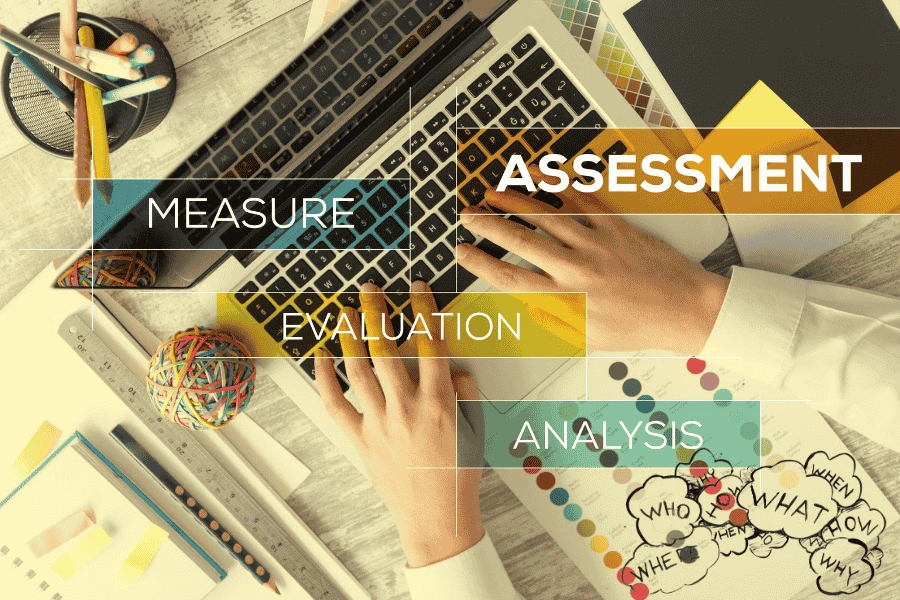Latest Trends in Data Analysis and How to Prepare for Them
Introduction
In today’s competitive job market, technical skills assessments have become an essential step in hiring processes, especially for software developers and engineers. These tests allow companies to objectively measure your practical abilities, such as coding, problem-solving, and technical knowledge, before making hiring decisions. Whether it’s an online coding test, a coding challenge, or a live technical interview, understanding the format and preparing strategically can boost your chances of success. This guide covers what you need to know and how to prepare for your technical interview and coding skills tests.

What is a Technical Skills Assessment?
A technical skills assessment is a test that evaluates your ability to perform tasks relevant to your job, typically focusing on programming, algorithms, and system design. These assessments may be conducted online via platforms like HackerRank or LeetCode, as take-home coding challenges, or as part of live interviews involving coding interview questions. Employers use these to assess not only whether you get the right answer but also your approach to solving problems, your coding style, and your technical knowledge.
Types of Technical Skills Assessments
There are various forms these assessments can take. Online coding tests evaluate your speed and problem-solving skills through timed challenges. Take-home assignments require you to complete coding tasks or projects independently. Live interviews may include whiteboard coding or pair programming to assess your thinking and communication in real time. Additionally, some tests use multiple-choice questions to evaluate theoretical knowledge in databases, networking, or security. Practical tasks, such as configuring software or writing SQL queries, are also common. Each format tests your coding skills and knowledge in different ways.
What Employers Look For
During a coding skills test or technical interview, employers seek several key qualities. They look at your problem-solving method and logical reasoning. Writing clean, efficient, and maintainable code is critical. A strong grasp of fundamentals like data structures and algorithms is often tested. Employers also assess your attention to detail, including your ability to test code thoroughly and consider edge cases. Communication skills are essential during live problem-solving, as is your ability to adapt to new challenges.
How to Prepare for a Technical Skills Assessment
Preparation begins with understanding the job requirements by analyzing the job description and focusing on the necessary technologies and skills. Regular practice on platforms such as LeetCode, HackerRank, and CodeSignal builds your problem-solving abilities over time. Building practical experience by working on projects or contributing to open source enhances your programming skills. Reviewing fundamentals like algorithms, data structures, and system design concepts is crucial. Simulating real test conditions through timed problem-solving and mock interviews helps you manage pressure. Finally, studying common interview questions and practicing how to explain your solutions will boost your confidence.
Tips for the Day of Your Assessment
On assessment day, carefully read all instructions before starting. Plan your approach to each problem before coding. Write clean, well-structured code and test it against multiple cases, including edge cases. Manage your time wisely and move on if stuck, returning to difficult problems later if time permits. Above all, stay calm and focused to deliver your best performance.
Overcoming Common Challenges
If you get stuck, break the problem into smaller parts and explain your reasoning aloud or in writing. Writing pseudocode can clarify your thought process. Use relaxation techniques like deep breathing to manage nerves. If you don’t know an answer, honesty and a willingness to learn often impress employers more than guessing.
Resources to Help You Prepare
Helpful resources include coding practice sites like LeetCode, HackerRank, and CodeSignal. For system design preparation, educative.io and GitHub’s System Design Primer are excellent. Books such as Cracking the Coding Interview by Gayle Laakmann McDowell provide comprehensive coverage. Video tutorials from channels like freeCodeCamp, TechLead, and CS Dojo offer visual explanations. Mock interview platforms such as Preamp and Interviewing.io help simulate real interview conditions. Exploring the best coding test websites will also provide valuable hands-on practice.
Conclusion
While technical skills assessments can be daunting, focused preparation and consistent practice will help you build the confidence and expertise needed to succeed. Concentrate on improving your coding skills, practicing algorithm problems, and understanding common technical questions. Remember, every assessment is an opportunity to learn and grow in your career journey. Best of luck on your path to acing your next technical interview!
Active Events
3 Must Have Projects On your CV to Get into Data Analysis
Date: Aug 05, 2025 | 7:00 PM(IST)
7:00 PM(IST) - 8:10 PM(IST)
2753 people have registered
Transition from Non-Data Science to Data Science Roles
Date: Aug 07, 2025 | 7:00 PM (IST)
7:00 PM (IST) - 8:10 PM (IST)
2753 people have registered
Bootcamps
Data Analyst Bootcamp
- Duration:8 weeks
- Start Date:October 5, 2024
Data Science Bootcamp
- Duration:8 weeks
- Start Date:October 5, 2024
